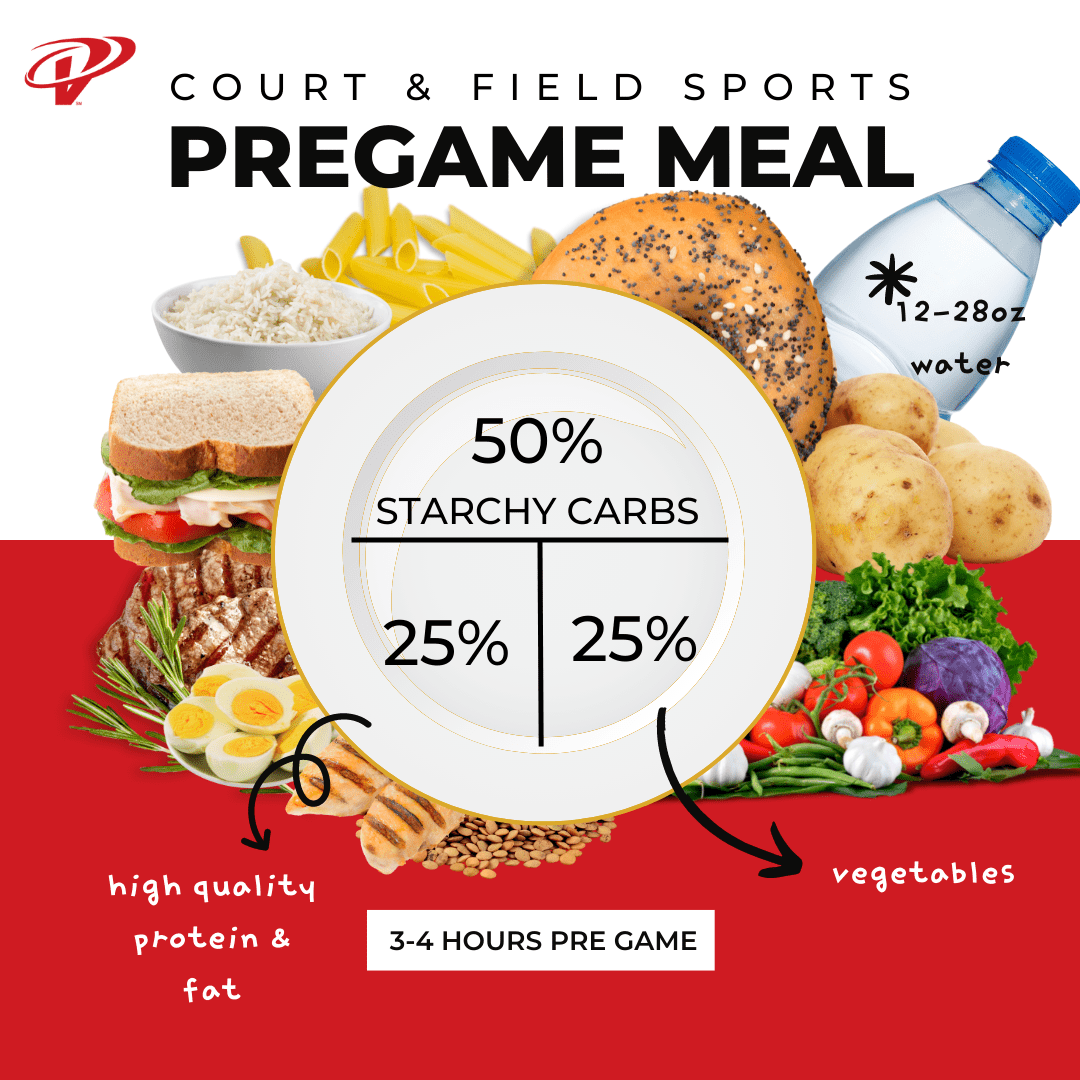The Crucial Pre-Game Day: A Comprehensive Guide To Optimizing Performance
The Crucial Pre-Game Day: A Comprehensive Guide to Optimizing Performance
Related Articles: The Crucial Pre-Game Day: A Comprehensive Guide to Optimizing Performance
Introduction
With great pleasure, we will explore the intriguing topic related to The Crucial Pre-Game Day: A Comprehensive Guide to Optimizing Performance. Let’s weave interesting information and offer fresh perspectives to the readers.
Table of Content
The Crucial Pre-Game Day: A Comprehensive Guide to Optimizing Performance

The day before a game is a crucial period for athletes, coaches, and teams, offering a unique opportunity to fine-tune strategies, manage physical and mental states, and ensure optimal preparation for the upcoming competition. This pre-game day, often overlooked in the frenzy of game day, plays a vital role in shaping the outcome of the contest.
Understanding the Significance of the Pre-Game Day
The day before a game provides a structured environment for athletes to transition from their regular training routines to a focused, pre-competition mindset. This transition is crucial for achieving peak performance. It allows for:
- Strategic Refinement: Coaches and players can review game plans, identify potential weaknesses, and strategize countermeasures. This process fosters a deeper understanding of the opponent’s strengths and weaknesses, allowing for tactical adjustments.
- Physical Recovery and Preparation: The pre-game day offers a chance for athletes to prioritize recovery, ensuring they are physically prepared for the demands of the game. This includes proper hydration, nutrition, and light training to maintain muscle readiness and prevent fatigue.
- Mental Preparation: The pre-game day is critical for managing pre-game anxiety and developing a focused mental state. Athletes can engage in mindfulness exercises, visualization techniques, and mental rehearsal to cultivate confidence and reduce stress.
- Team Cohesion: The pre-game day provides opportunities for team bonding, fostering a sense of camaraderie and shared purpose. This can involve team meetings, lighthearted activities, or simply spending time together to build team spirit and camaraderie.
Navigating the Pre-Game Day: A Step-by-Step Approach
A well-structured pre-game day ensures a smooth transition into competition mode. Here’s a comprehensive breakdown of essential activities:
1. Rest and Recovery:
- Prioritize Sleep: Adequate sleep is paramount for physical and mental recovery. Athletes should aim for 7-9 hours of quality sleep, ensuring a well-rested body and sharp mind.
- Active Recovery: Light activities like walking, stretching, or foam rolling can aid muscle recovery and improve blood circulation, promoting overall well-being.
- Hydration: Maintaining proper hydration is crucial. Athletes should drink plenty of water throughout the day, avoiding sugary drinks or caffeine.
2. Nutrition and Hydration:
- Balanced Meals: Consuming a balanced diet with adequate carbohydrates, protein, and healthy fats is essential for energy replenishment and muscle repair.
- Hydration Management: Continued hydration throughout the day is crucial, ensuring optimal performance and preventing dehydration.
- Pre-Game Meal: A light, easily digestible pre-game meal, approximately 2-3 hours before the game, provides sustained energy without causing digestive discomfort.
3. Mental Preparation:
- Visualization: Visualizing successful game scenarios can enhance confidence and improve performance. Athletes can mentally rehearse key plays and strategies, solidifying their mental game plan.
- Mindfulness Techniques: Techniques like deep breathing, meditation, or progressive muscle relaxation can help manage pre-game anxiety and promote a calm, focused state.
- Positive Self-Talk: Replacing negative thoughts with positive affirmations can boost confidence and motivation. Athletes can focus on their strengths and previous successes, building a positive mindset.
4. Tactical Review and Strategy:
- Game Plan Analysis: Coaches and players should review the game plan, identifying potential weaknesses and strategizing countermeasures. This process fosters a collective understanding of the opponent’s strengths and weaknesses.
- Opponent Analysis: Studying film and reviewing the opponent’s recent performances can provide valuable insights into their tendencies and strategies.
- Team Meetings: Team meetings allow for open communication, ensuring everyone is aligned with the game plan and understands their roles and responsibilities.
5. Team Bonding and Camaraderie:
- Team Activities: Engaging in lighthearted activities like team dinners, games, or social gatherings can foster camaraderie and build team spirit.
- Shared Experiences: Spending time together outside of training can strengthen team bonds and promote a sense of unity.
- Positive Communication: Open and positive communication within the team creates a supportive environment, encouraging cooperation and mutual trust.
FAQs: Addressing Common Concerns
Q: How much sleep should athletes aim for the night before a game?
A: Athletes should prioritize 7-9 hours of quality sleep the night before a game. This ensures physical and mental recovery, allowing them to perform at their best.
Q: What should athletes eat the day before a game?
A: A balanced diet with adequate carbohydrates, protein, and healthy fats is essential. Athletes should consume meals that provide sustained energy and support muscle recovery.
Q: How can athletes manage pre-game anxiety?
A: Mindfulness techniques, visualization, and positive self-talk are effective strategies for managing pre-game anxiety. These techniques help athletes focus on their strengths and develop a calm, confident mindset.
Q: What are some tips for team bonding on the pre-game day?
A: Team dinners, games, or simply spending time together outside of training can foster camaraderie and build team spirit. Engaging in shared experiences strengthens team bonds and promotes a sense of unity.
Tips for Maximizing the Pre-Game Day
- Establish a Routine: Consistency is key. Creating a pre-game routine allows athletes to transition smoothly into competition mode.
- Prioritize Rest: Adequate sleep is crucial for physical and mental recovery. Ensure athletes have enough time to rest and recharge.
- Hydrate Consistently: Maintain proper hydration throughout the day, avoiding sugary drinks or caffeine.
- Plan a Balanced Diet: Consume meals that provide sustained energy and support muscle recovery.
- Practice Mindfulness: Engage in mindfulness techniques to manage anxiety and cultivate a calm, focused mindset.
- Visualize Success: Mentally rehearse key plays and strategies, enhancing confidence and improving performance.
- Communicate Effectively: Open and positive communication within the team ensures everyone is aligned and understands their roles.
- Foster Team Spirit: Engage in team bonding activities to build camaraderie and promote a sense of unity.
Conclusion: The Pre-Game Day – A Foundation for Success
The day before a game is not merely a transition period; it is a critical opportunity to optimize performance. By prioritizing rest, nutrition, mental preparation, and team cohesion, athletes can maximize their potential and enter the competition with a clear mind, a healthy body, and a shared sense of purpose. This meticulous preparation sets the stage for success, ensuring that athletes are physically, mentally, and strategically prepared to give their best on game day.








Closure
Thus, we hope this article has provided valuable insights into The Crucial Pre-Game Day: A Comprehensive Guide to Optimizing Performance. We hope you find this article informative and beneficial. See you in our next article!